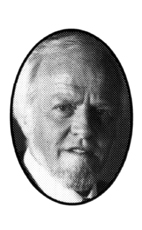Madam Speaker, I want to tell you first that I will share my time with the member for Verchères. It is a pleasure for me to take part in this debate on the deployment of a UN multinational force. As my colleagues who spoke before me told the House, the Bloc Quebecois supports and welcomes this Canadian initiative.
My colleague from Rosedale told us that it is the third or fourth time we hold such a debate. Every time there is a debate about sending Canadian troops to hot spots, we are always confronted to the same question: Are Canadians and Quebecers in favour of sending these Canadian troops abroad?
In our ridings, opinions are divided. Some people are radically opposed, most often for financial reasons, while others strongly defend the idea, usually on humanitarian grounds.
In the February 1995 budget, the Canadian government cut all subsidies to non-governmental organizations specifically set up to show Canadians and Quebecers how important international co-operation is. I think that, in doing so, the government has made things much harder to understand. People see that the government is making decisions it should explain, but that it has stopped providing information.
I think it is essential that Canada be present in these disaster areas, for they are indeed disaster areas. Everybody agrees that the fall of the Berlin Wall and the collapse of the USSR have changed the world. It is one thing to recognize that the world has changed, but it is another to realize that the notion of security contains elements we had been previously unaware of.
Nowadays, when we talk about security, our security, the security of Quebecers and Canadians, is at stake every time some disaster occurs. I will list a few, such as population migrations caused by all kinds of situations.
It is estimated that 50 million men, women and children are displaced, have left their home, their homeland, their town or city due to tensions, wars, etc.
At the recent FAO summit on food, it was said that 800 million people are undernourished. The summit made the long term commitment of reducing world hunger by half within 20 years.
Underdevelopment, ethnic wars, overpopulation are issues of concern to us. Is the planet going to be able to sustain continuing demographic growth? I say that all these issues concern us because now and again our constituents ask us: "Do you not think that too many immigrants and refugees are allowed into Canada?"
If we refuse to do something about these problems, if Canada does not intervene in disaster areas, Canadians and Quebecers will not be able to use the same logic and say: "We should not let refugees in". Refugees are the immediate product of these events and we are all concerned.
We are so concerned that increasingly, within the international community, it is recognized that ethnic wars, civil wars within a country's boundaries, give rise to an obligation to interfere. Ten or fifteen years ago, this would have been unthinkable. Now international law is starting to say that whenever there are civil wars where the most fundamental rights of people are denied, it is the duty, not only the right, but the duty of the international community to take action.
Let us go back to the situation in Rwanda. How did the international community address this problem? As early as 1992 or 1993, following some missions in the great lakes region, the International Centre for Human Rights and Democratic Development, based in Montreal, had warned the secretary general of the United Nations that something was brewing that had all the characteristics of a genocide.
The international community did nothing. It waited for the crisis to explode in 1994. What happened of course is that between 500,000 and 1,000,000 people were killed. Naturally, what followed was the exodus of refugees, and bordering countries, like Zaire and Burundi, suffered the consequences.
Two years after the end of the genocide, we now realize that the international community was not very active in implementing solutions. The refugee situation in Zaire had to become explosive before the international community started to wonder if it should
act, and I want to commend the Canadian initiative, which finally stirred the international community to action.
However, we are always putting out fires. Instead of preventing, instead of making sure the developing countries get out of their underdevelopment, instead of investing in durable human development, education, health, democratisation, democratic governments, human rights and civilian societies, the international community continues to invest billions of dollars in defense budgets and merely tosses crumbs to help developing countries.
Let us take Canada, for example, because it is the same as in the other countries. Canada allocates about $2 billion to its official development assistance and a budget of about $10 billion to defence, as if nothing had happened in the early 1990s, as if the concept of security had remained the same and was only related to a military aspect.
So, the international community must get out of its torpor. Permanent mechanisms must be put in place, not to impose peace, but to ensure that, in countries where these tensions exist, people can gradually regain hope and can develop in a framework that respects them. At that time, we will stop putting out fires, because we will have put a stop, perhaps, to underdevelopment.

